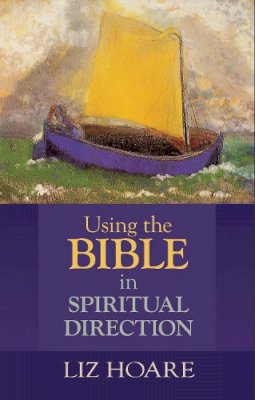22%OFF

Stock image for illustration purposes only - book cover, edition or condition may vary.
Using the Bible in Spiritual Direction
Liz Hoare
€ 20.99
€ 16.39
FREE Delivery in Ireland
Description for Using the Bible in Spiritual Direction
Paperback. The Bible is central to the practice of spiritual direction, yet poor, shallow or rigid use of the Bible can lead to damage and inhibit spiritual growth. This book offers ways of unlearning inadequate use of the Bible and developing healthier approaches. Num Pages: 160 pages. BIC Classification: HRCX4. Category: (P) Professional & Vocational. Dimension: 218 x 139 x 19. Weight in Grams: 232.
Spiritual direction is as old as the Christian faith. Today there is an ever growing demand for this ministry, despite the decline in membership of the institutional Church. The Bible has always had a privileged place in the director's toolkit and has been mined as a resource in different ways. It has been a source of wisdom; it has provided material for prayer and reflection; it has encouraged those just beginning in prayer and those for whom prayer has run dry; it has challenged belief and behaviour in the struggle to discern God's will and set boundaries for orthodoxy in Christian experience. With that all this in mind, the author suggests that spiritual direction is not just for individuals but for the flourishing of the Church as a whole. There is evidence of a loosening of the links between Christian orthodoxy and the practice of spiritual direction. It is also often perceived as a private and individualistic pursuit. The author therefore asks how the Bible challenges this interpretation of a key but often unacknowledged ministry in the Church, and how it may help the whole Church to own spiritual direction and thereby benefit the wider world.
Product Details
Publisher
SPCK Publishing
Format
Paperback
Publication date
2015
Condition
New
Weight
231g
Number of Pages
160
Place of Publication
London, United Kingdom
ISBN
9780281072200
SKU
V9780281072200
Shipping Time
Usually ships in 4 to 8 working days
Ref
99-2
About Liz Hoare
Elizabeth Hoare is Tutor for Spiritual Formation at Wycliffe Hall, Oxford, and has been giving and receiving spiritual direction for over 25 years. She is the author of Spirituality and Remembering (Grove Books 1996), What is Celtic Christianity? (Grove Books 2008), Nurturing the Spirit of a Child (Grove Books 2009) and the chapter on Anglican Spirituality in The Blackwell Companion to Anglicanism (Wiley-Blackwell 2013).
Reviews for Using the Bible in Spiritual Direction
... finding new insights in familiar texts ... Her writing is succinct and approachable, and offers a very readable introduction to spiritual direction. The book will be useful both to those involved in direction and those seeking direction.
Peter Thompson
Church of Ireland Gazette
Peter Thompson
Church of Ireland Gazette
